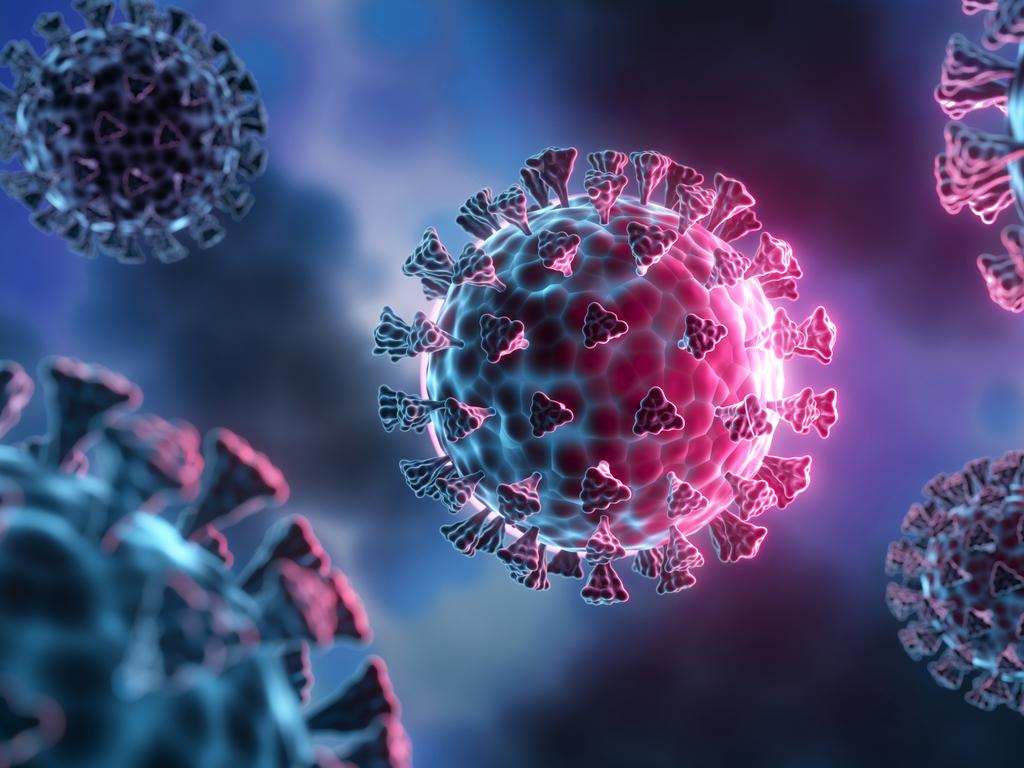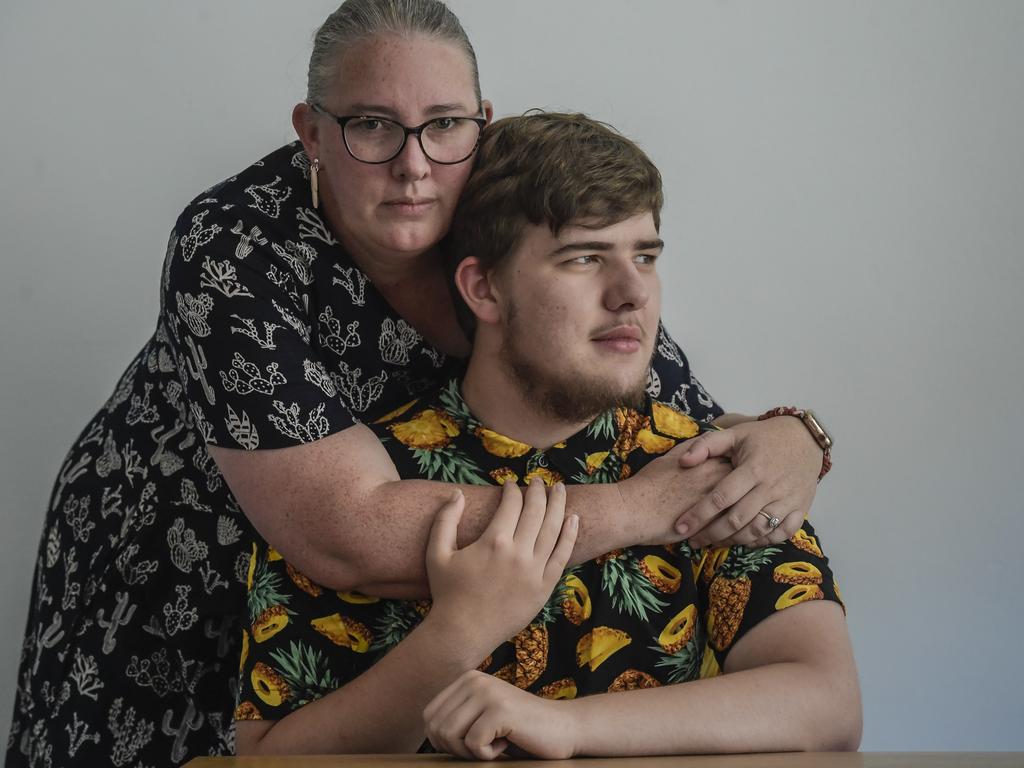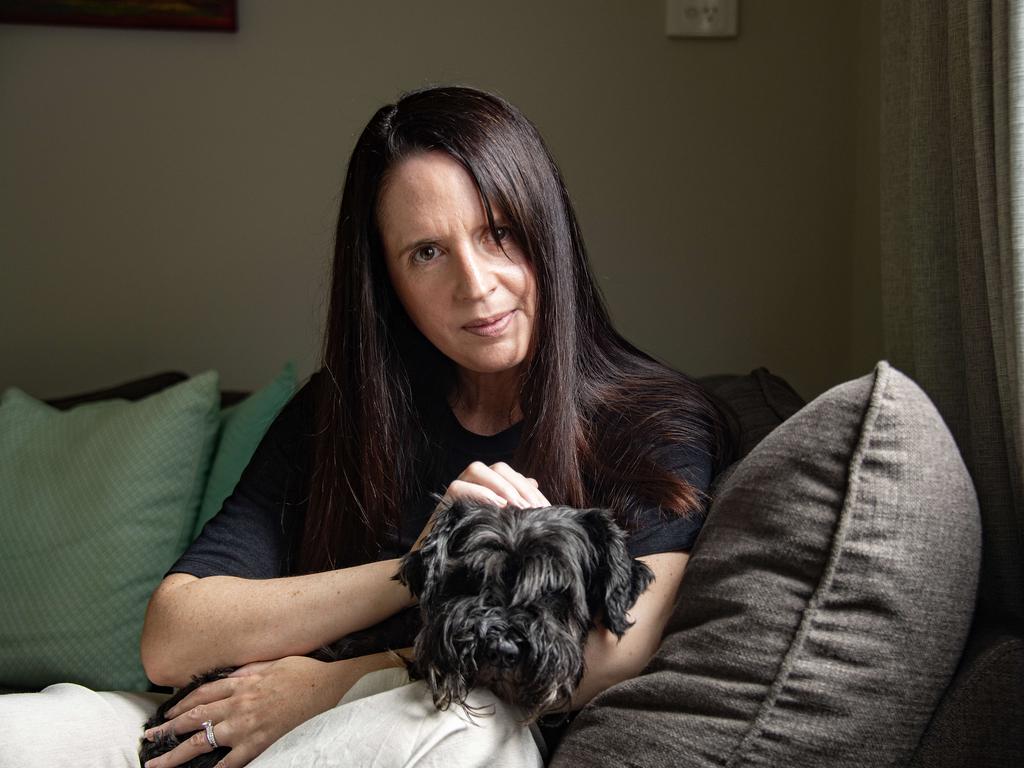Australians injured by Covid vaccines ‘neglected, forgotten’
Many of those who experienced severe reactions and even the death of loved ones want their experiences studied.
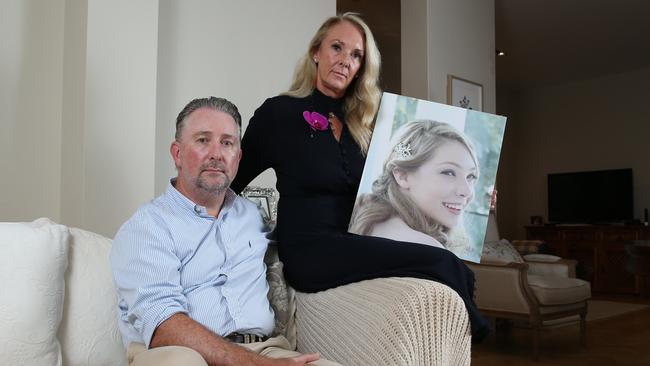
It was a reassuring announcement that most people would have missed in those dark days of August 2021 when Melbourne had just entered its sixth Covid lockdown and the army and police were patrolling parts of Sydney to enforce strict stay-at-home rules.
Covid deaths were edging close to 1000 and only about a quarter of adults had received their second immunisation. People were spooked by changing advice about the readily available AstraZeneca vaccine following higher than expected cases of a rare blood-clotting disorder that, by August 5 that year, had been linked with the deaths of six people aged 35 to 72 and sent others to hospital.
It was a confusing and frightening time when federal health minister Greg Hunt announced a comprehensive national no-fault indemnity scheme would provide Australians moderately or severely injured by a Covid vaccine with a “simple and quick” process for compensation. “Serious and life-threatening side effects are very rare, but it is important that we provide a safety net to support those affected,” he said.
Eighteen months on, that compensation scheme is mired in confusion and obscurity – further evidence, say people who have suffered a severe reaction, that they have been neglected and forgotten like bad memories.
“It’s a really complicated scheme,” says lawyer Donna McManus, whose small Brisbane-based firm Murphy’s Law has advised more than 300 people, many relating to cardiac issues suspected to be linked to a Covid vaccine. “It’s like they’re making it as hard as they can for people to submit a successful claim.”
Only seven narrow medical conditions are eligible, the paperwork is onerous for applicants and their busy physicians, and the process is lengthy and repetitive.
There’s an added complication: “Doctors will acknowledge their belief it was an injury caused by the vaccine but some are unwilling to put it in writing,” McManus says, citing a directive by the Australian Health Practitioner Regulatory Agency that medical professionals could be sanctioned for expressing concerns about the vaccine.
Sydney GP Kerryn Phelps, whose wife Jackie suffered a serious neurological reaction within minutes of her first Pfizer vaccination and is still significantly affected, confirms that vaccine injury is a subject few in the medical profession have wanted to talk about.
“Regulators of the medical profession have censored public discussion about adverse events following immunisation, with threats to doctors not to make any public statements about anything that ‘might undermine the government’s vaccine rollout’ or risk suspension or loss of their registration,” Phelps said in her submission to a parliamentary inquiry into long Covid. She revealed she had also suffered a vaccine injury following her second Pfizer shot.
McManus says she has assured medicos they can give evidence for their patients on a government compensation scheme. “But I think it (the AHPRA directive) terrified a lot of doctors,” she adds.
Rather than being a simple and quick process as promised by Hunt, Services Australia, which operates the scheme, now admits the assessment process can be complex. Of the 3395 claims so far, just 126 have been approved and $7.2m paid out. A further 2357 are in progress or awaiting further information, 562 have been rejected and 350 withdrawn.
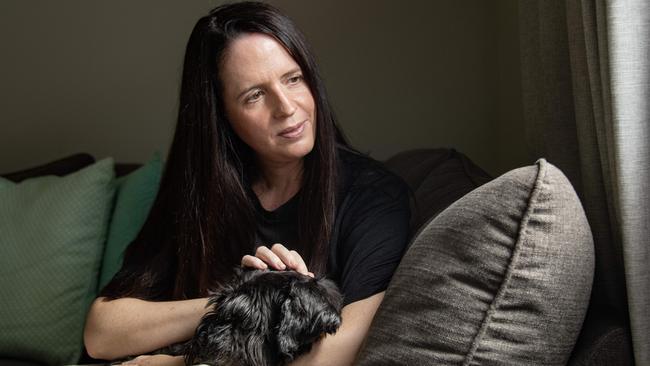
“For the few who meet the eligibility criteria the process is extraordinarily complex and places an extreme burden on desperately unwell people,” says Naomi Smith, who suffered pericarditis (inflammation of the thin sac that surrounds the heart) linked by doctors to her Pfizer shot. She is involved in advocating for others through the support group Coverse. “I only personally know one person who has submitted and been successful, the rest are either awaiting outcomes, are ineligible or are waiting until they are well enough to deal with the bureaucracy.”
The Weekend Australian has spoken to several people who have been enmeshed in the process. Sydney chartered accountant Habib Khan suffered heart failure secondary to myocarditis (inflammation of the heart muscle) after his first Pfizer injection and required life support and many months of rehabilitation. Even with his professional background, the claim process was complex, he said, and the compensation he received did not reflect his losses.

Adelaide mother Rachael Crabb made a claim after her then 15-year-old son developed pericarditis medically linked to his second Pfizer vaccine. He required surgery and has ongoing effects but Crabb’s claim was knocked back by Services Australia because, as a child, Ethan hadn’t suffered financial impact even though his parents had.
Brisbane man Mike Hand, who developed myocarditis that his doctors believed was likely caused by his AstraZenenca vaccine, says his claim was refused because myocarditis is claimable only against a Pfizer or Moderna vaccine. This is despite the Health Department’s own advisory that says, “There is a small risk of myocarditis and/or pericarditis following AstraZeneca.”
The compensation scheme involves public money and no one is suggesting it should be open slather; claimants must be able to show medically that their condition is causally linked with the vaccine. But in an environment where everyone had to “do their bit”, and where personal freedoms and, for some, the ability to work were curtailed by the requirement to be fully vaccinated, the small cohort who were injured expect it should at least be fit for purpose.
Pediatrician Nick Wood, a professor in clinical vaccinology at the University of Sydney, recently returned from a Churchill Fellowship looking at the management of vaccine reactions. He says compensation is an important part of a vaccine safety scheme.
“The fact is that although serious adverse events after vaccinations, both Covid and non-Covid, are rare, these should be acknowledged, explained and compensated by the government and well managed and resourced,” he said.
Wood says Australia should expand its claims scheme to cover all vaccines on the national program. “New vaccines are coming, for example respiratory syncytial virus vaccines, which use new technology and may potentially lead to new adverse events. An Australian claims scheme is particularly needed given our mandates – No Jab No Pay and No Jab No Play.”
His next statement, made on a Churchill Fellowship media statement, will give people who suffered side effects some hope. “One of my key findings is that long-term follow-up of rare but serious adverse reactions should be a routine part of our vaccine safety surveillance system.”
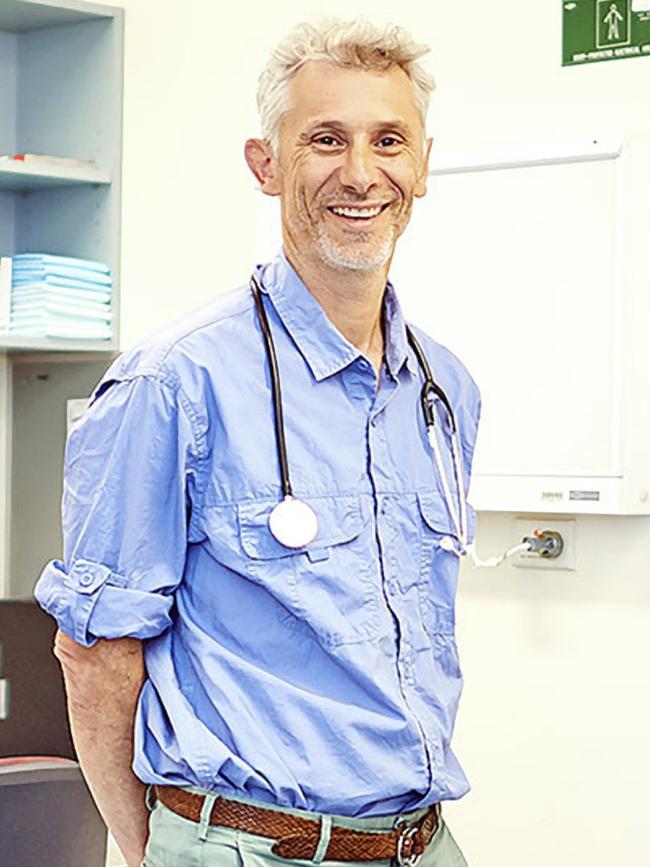
Compensation issues aside, people who have spoken to The Weekend Australian want their experiences to be recorded and studied so they and others can understand a simple question: Why were most people absolutely fine after their Covid vaccines while others, clearly, were not?
Jennifer Martin, a general physician and clinical pharmacologist at the University of Newcastle, explains it in the context of an unprecedented public health emergency. “We didn’t initially have any medicines or vaccines and we were seeing significant mortality,” she says. “When treatments and vaccines became available there was relief that this mortality could be prevented. We were very busy with the pandemic response, and people were so focused on preventing hospitalisation or death from Covid that we hadn’t had time to set up systems to collect national data on health outcomes from the various interventions including vaccines.
“I think it’s easy to forget the situation we were in, in 2020, and the decisions that had to be made to protect the population. Out of necessity we had to be focused on preventing harms from Covid. Knowledge of the rare but real adverse events that were being reported from the surveys post vaccine, and through the regulatory agencies globally on medicines, were known but appeared relatively similar to other medicines and vaccines.”
Martin says information is needed as more vaccines roll out. “People ring me, as a clinical pharmacologist and toxicologist, worried that if they had an adverse reaction to the last one should they go ahead and get a fourth or fifth vaccine. Or if they had rebound Covid symptoms from their antiviral course should they take a repeat course – again, this is an evidence-free zone currently – so we give the best advice we can. The Australian Technical Advisory Group on Immunisation has made recommendations to guide doctors on the risk-benefit for a particular vaccine for a particular population group.”
Now the emergency phase of the pandemic is over, many experts have said they want more information, not just about vaccine side effects but long Covid and why some people suffered a severe response to the infection itself.
This quest for more data, and growing recognition of the small cohort who suffered vaccine injuries, doesn’t deny the benefits of the vaccination program or diminish how serious and deadly a Covid infection was for many people.
According to the Australian Bureau of Statistics, up to January this year Covid was the underlying cause of death for 12,639 people. It was a contributing factor in the deaths of a further 3033 people who died of other causes. The median age for those who died was 85.6 years (83.9 years for males, 87.6 years for females).
The Therapeutic Goods Administration’s most recent vaccine safety report says of more than 65 million doses of Covid vaccines, almost 138,000 adverse events have been reported. (A report does not mean the event has been determined to be caused by the vaccine.) Of 982 deaths reviewed, 14 have been linked to vaccination (13 to the first AstraZeneca dose and one to the Moderna booster). The age range was 21 to 81.
“Vaccines can lead to death in extremely rare instances,’’ the TGA notes. “However most deaths that occur after vaccination are not caused by the vaccine.”
The regulator says a causal relationship between the vaccines and the side effects is usually not certain. “The symptoms may be related to an underlying illness or to other factors … The symptoms may have occurred coincidentally.” Some people’s symptoms may reflect long Covid. It’s a complex picture. But the TGA advice is clear: “Vaccination against Covid-19 is the most effective way to reduce deaths and severe illness from infection. The protective benefits of vaccination far outweigh the potential risks.”
However, questions have arisen about the process for reviewing and following up adverse reactions and deaths. Sydney parents Bruce and Sophie Sedgwick recently spoke of their frustration in trying to get answers after their daughter Amy’s health suddenly and drastically deteriorated following her Pfizer immunisations. The previously healthy 24-year-old, who had a mild underlying condition, unexpectedly died in her sleep 12 months ago. An autopsy could not determine a cause of death.
Her father reported her severe reaction, linked by her treating physician to the vaccine, to the TGA. But even after Amy’s death, her family has heard nothing more from the regulator or any other expert review panel. A year on, her case sits with the coroner, who may take many more months to report an outcome.

“In our opinion, all aspects of that government vaccine portal are grossly inadequate,” her parents told a parliamentary inquiry. “Lessons must be learnt.”
In one case where the TGA investigated and accepted a link between a young woman’s death and her Moderna booster, her family has said they were kept out of the loop. Natalie Boyce, 21, was a healthy law student with an underlying blood-clotting condition, antiphospholipid syndrome, who developed myocarditis following her booster. The TGA convened an expert panel that accepted her death was likely linked to the vaccine and recommended that existing health warnings in the product information be updated to clarify that myocarditis could occur in females as well as males and after a booster dose. The symptoms, they said, could be atypical
Natalie’s mother, Deborah Hamilton, told news.com.au the first she heard of the investigation was when the coroner’s office contacted her last September as a “courtesy” to inform her the TGA would be releasing a report that might attract media attention. “I’m disgusted that the TGA has not contacted or given me any of those reports,” she said.
As a regulatory organisation the TGA does not routinely give feedback or contact individual cases. But after the largest mass immunisation program to be conducted in Australia, who should be responsible for closing the loop between families and patients affected by vaccine injuries and the authorities?
The federal government is planning to establish a Centre for Disease Control to improve Australia’s response and preparedness for public health emergencies. Wood says a dedicated immunisation safety office could be part of this new body.
And he says some long-term studies are now under way. The organisation AusVaxSafety is tracking outcomes in patients who developed myocarditis associated with the mRNA vaccines, and thrombosis with thrombocytopenia syndrome (TTS), a rare blood-clotting condition related to the AstraZeneca vaccine.
A larger Queensland study of 10,000 people that aimed to uncover why the Covid virus and vaccinations affect people differently will not be funded beyond June this year and is looking for a new sponsor. A global genomics study is looking at Guillain-Barre syndrome, TTS and myocarditis/pericarditis to understand who is at risk from these rare adverse events and why.
Wood and his colleagues will have no problem finding subjects willing to participate in future studies. Brisbane physiotherapist Amanda Sires, 44, developed a constellation of side effects that began with pericarditis and postural orthostatic tachycardia syndrome, which causes rapid heart rate, dizziness and fatigue, before progressing to other neurological symptoms. She says the pericarditis was bad but, 17 months on, it’s the ongoing neurological issues that are proving debilitating. “I’ve got partial paralysis of my legs, I can only walk 100m on a good day. I’ve had to hire a carer to look after my kids and I’ve spent $50,000 on medical bills over the last 17 months. It’s crippling financially, emotionally and physically.”
Sires is in a unique position in that her identical twin, Tanya Winter, had a near identical response following vaccination. “There’s obviously a strong genetic link as to why we’ve reacted this way and I’ve been saying, ‘study us!’ ” she says, adding that she updates the TGA regularly on her progress even though it never responds.
“You think you are reporting something that is quite alarming and/or interesting and/or could be the key to solving why certain people are responding badly to the vaccinations, and you never hear back.
“I cannot understand why no one is interested.”



